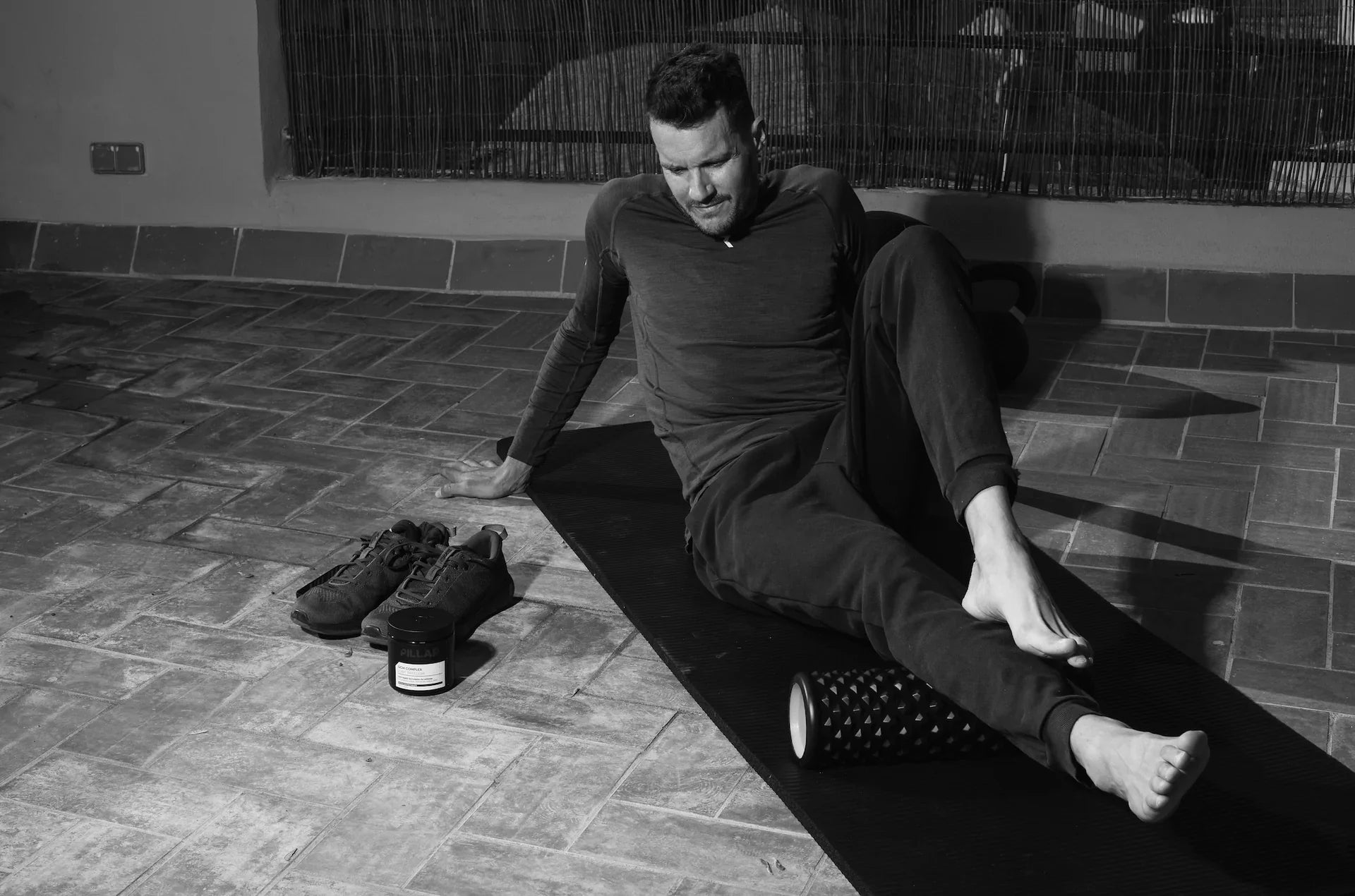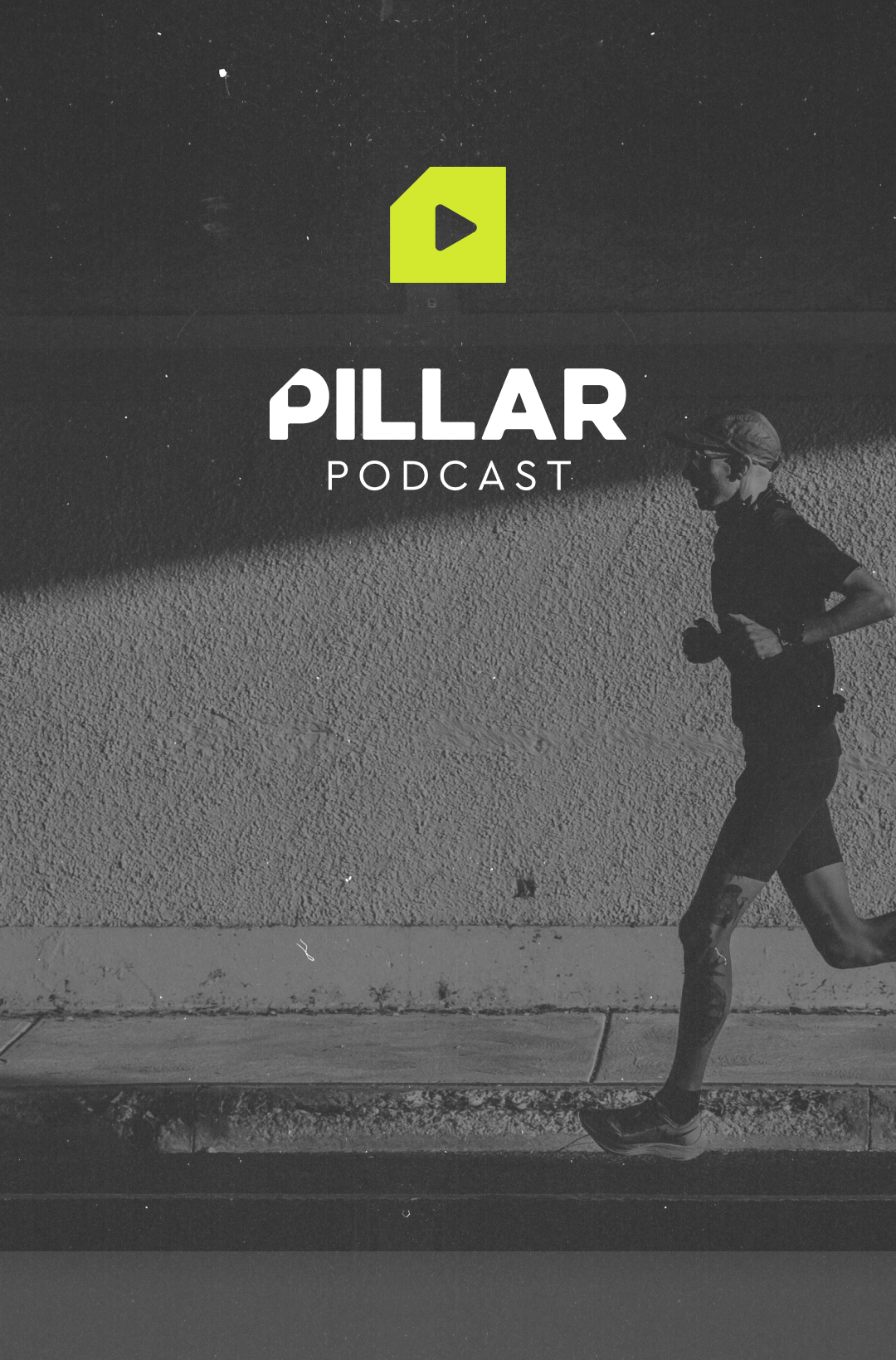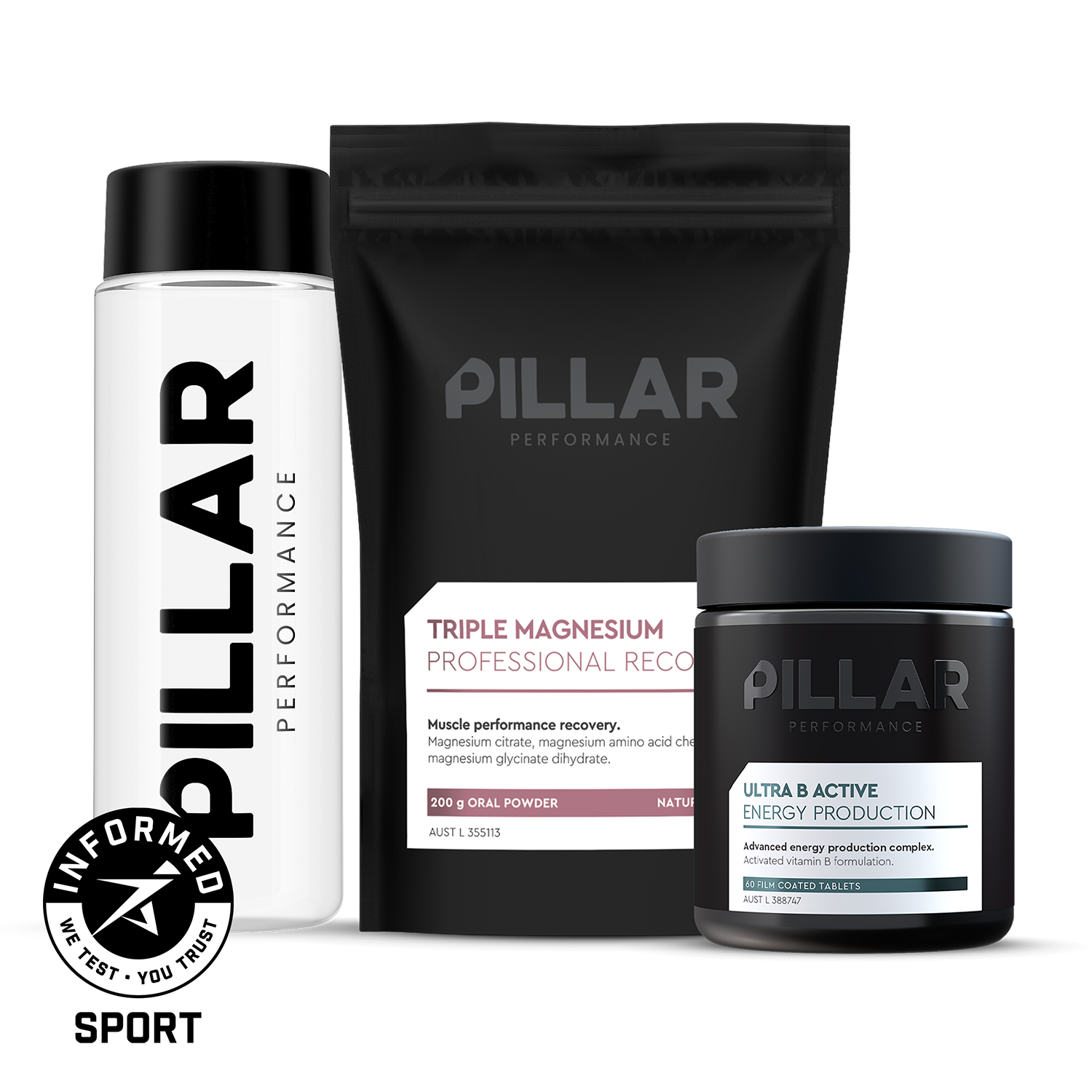
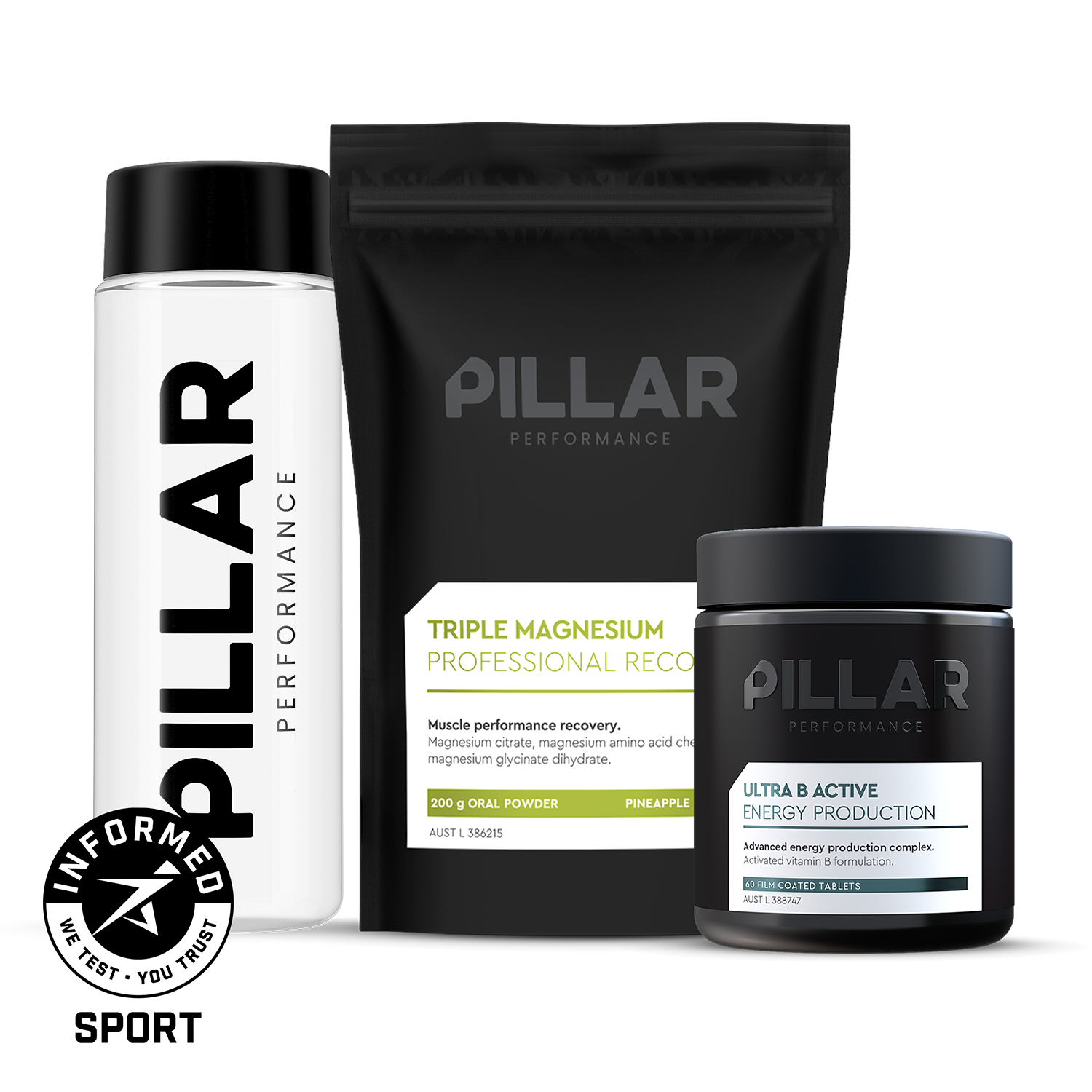
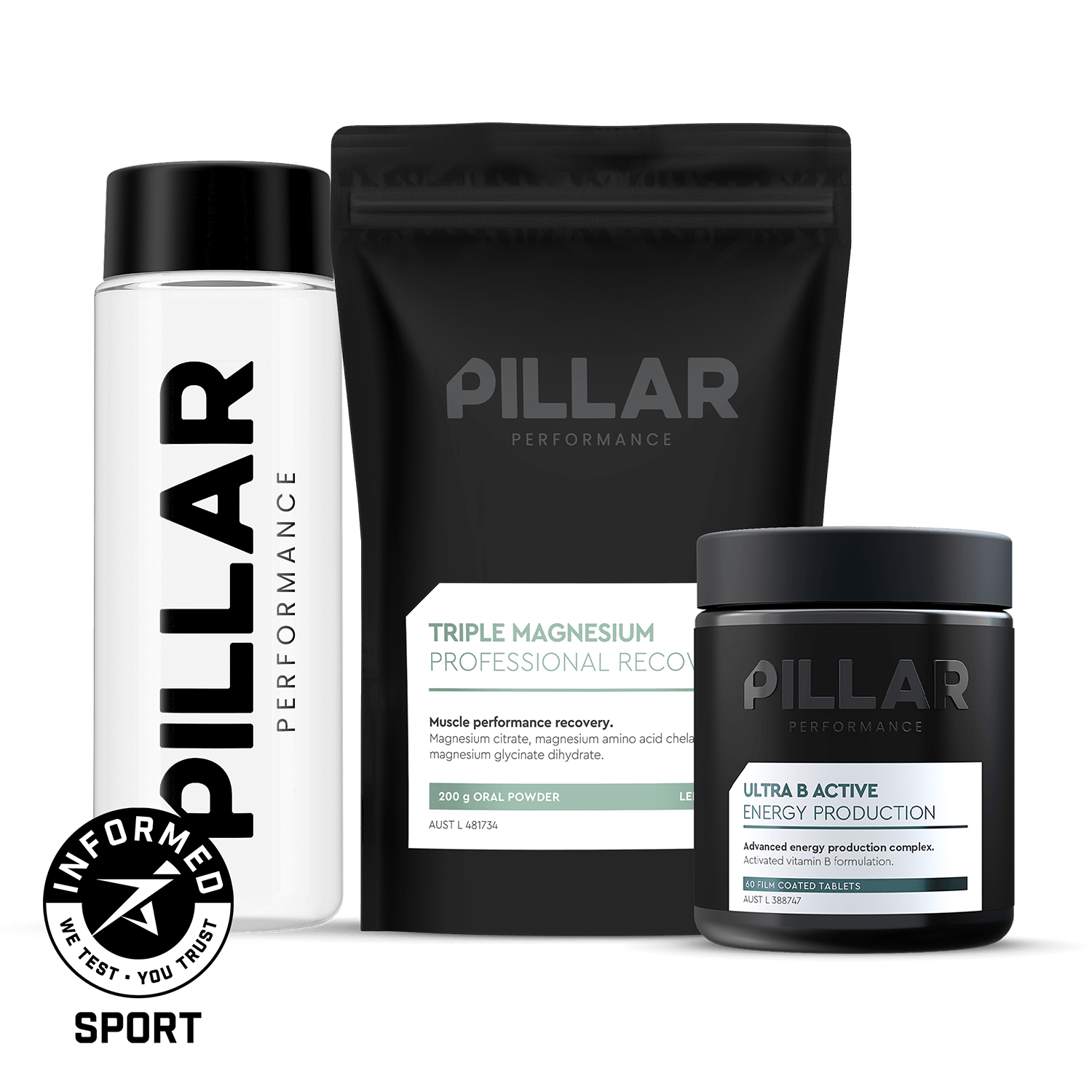
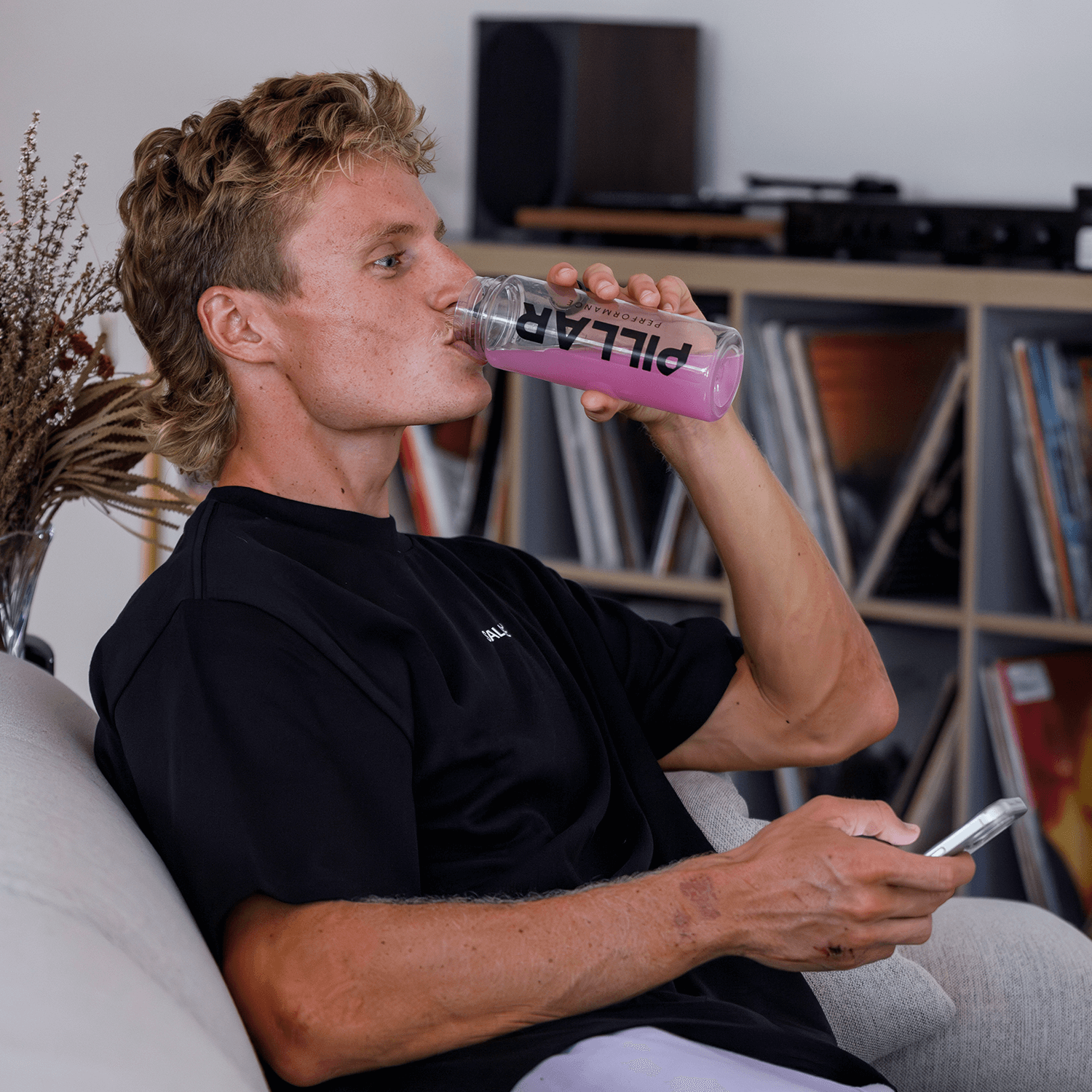
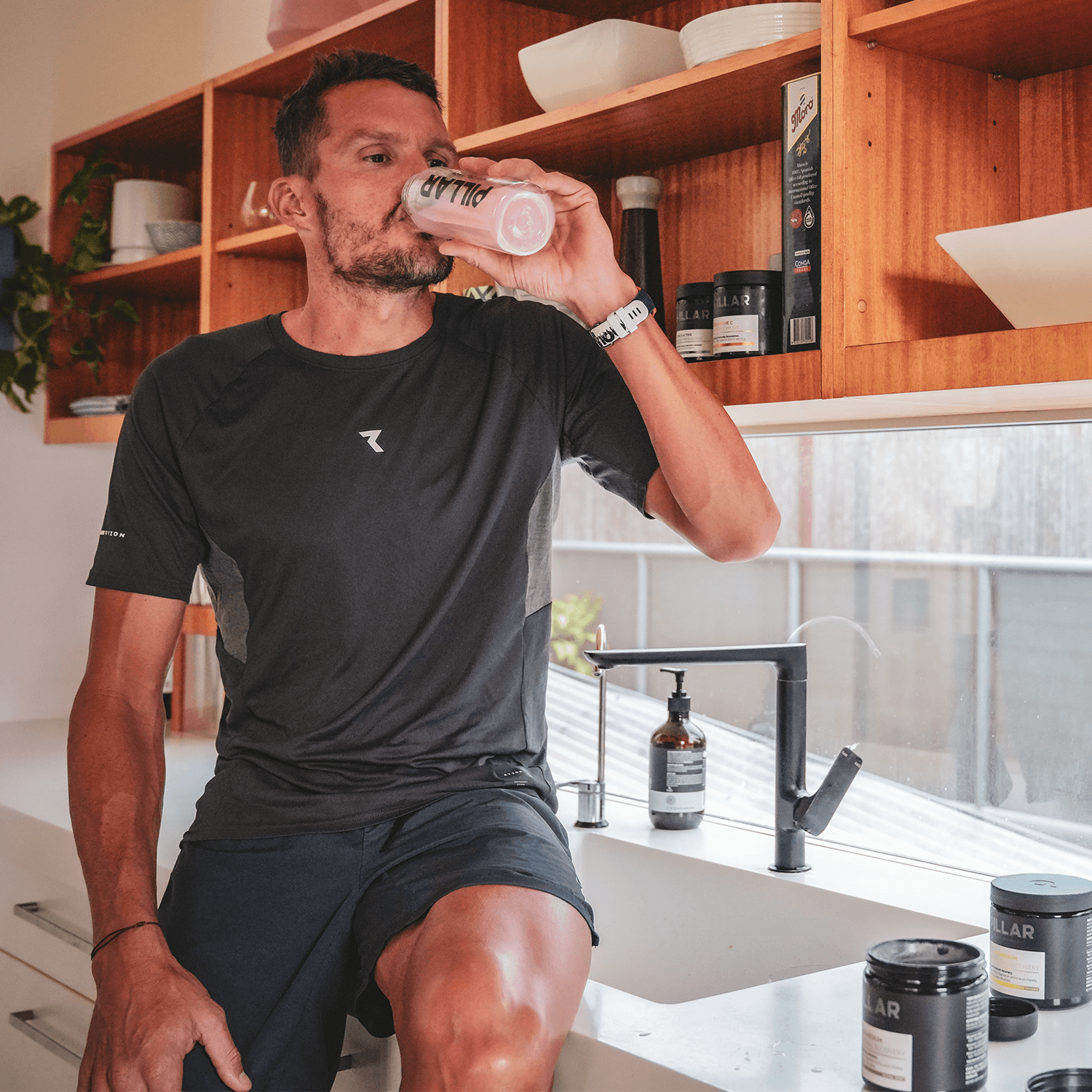
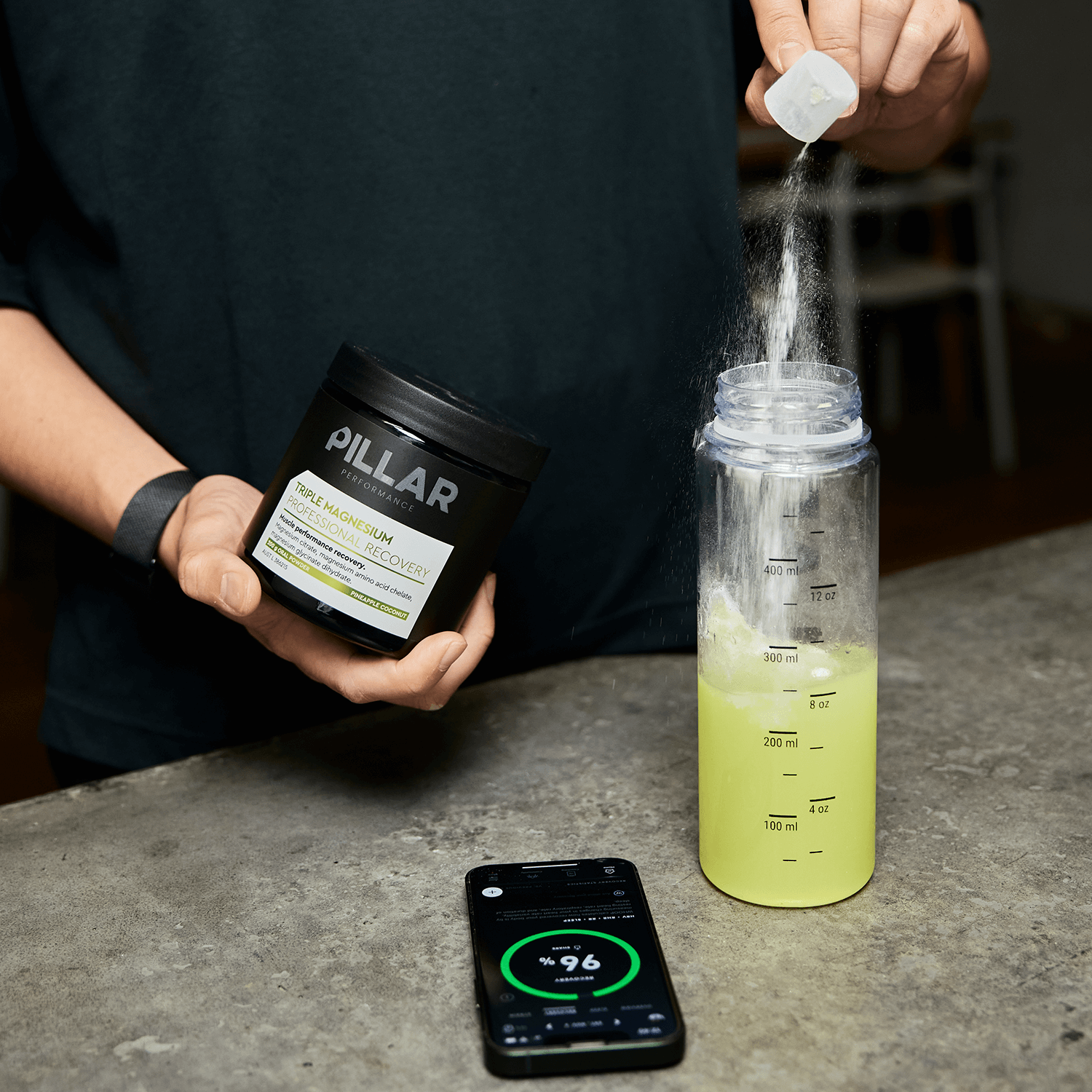

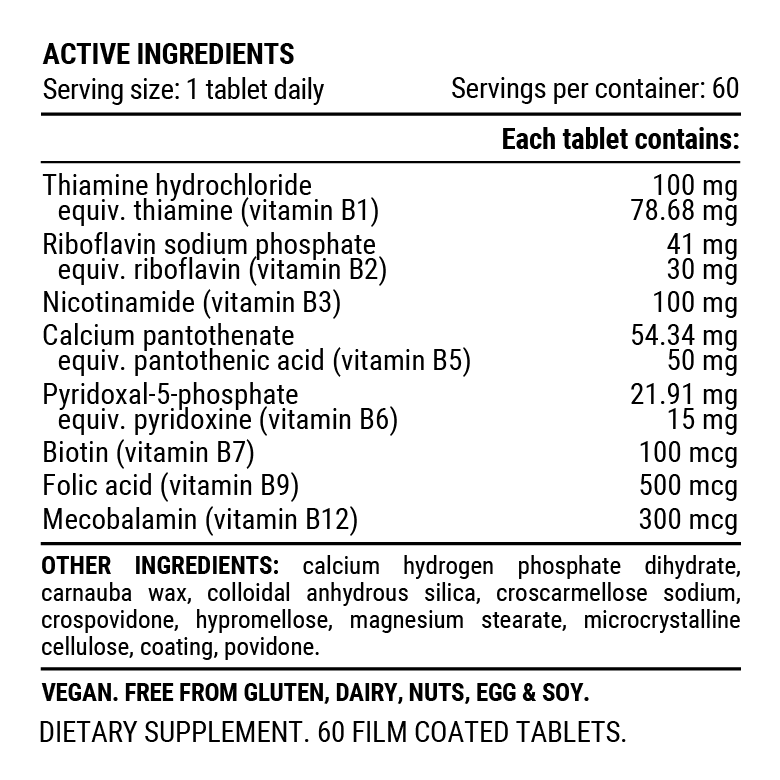
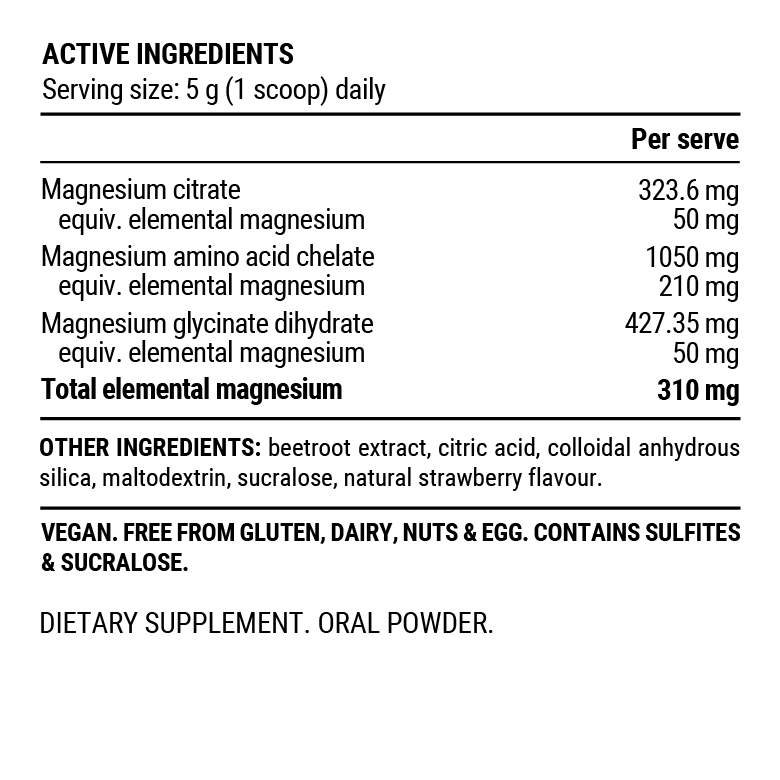
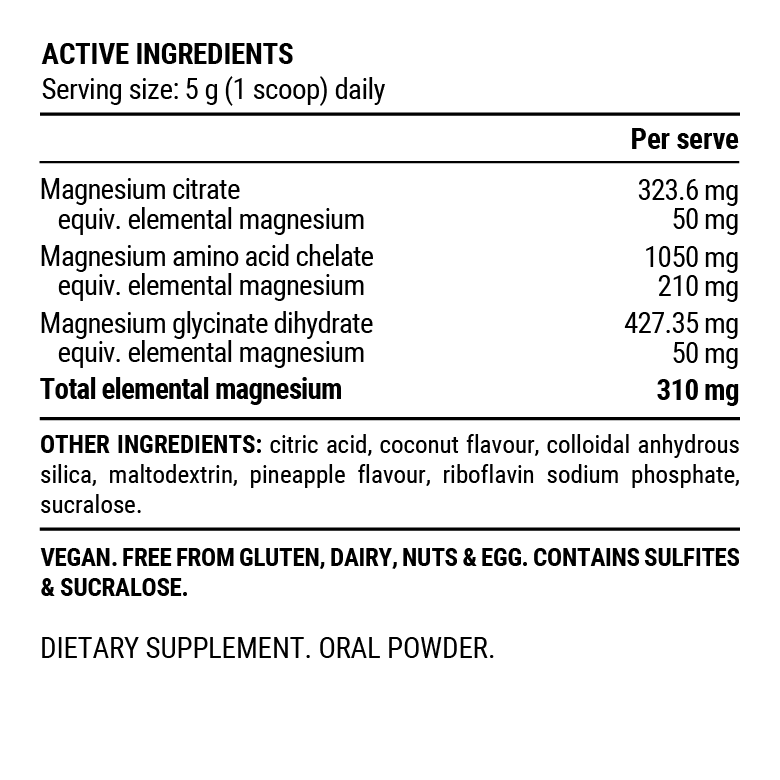
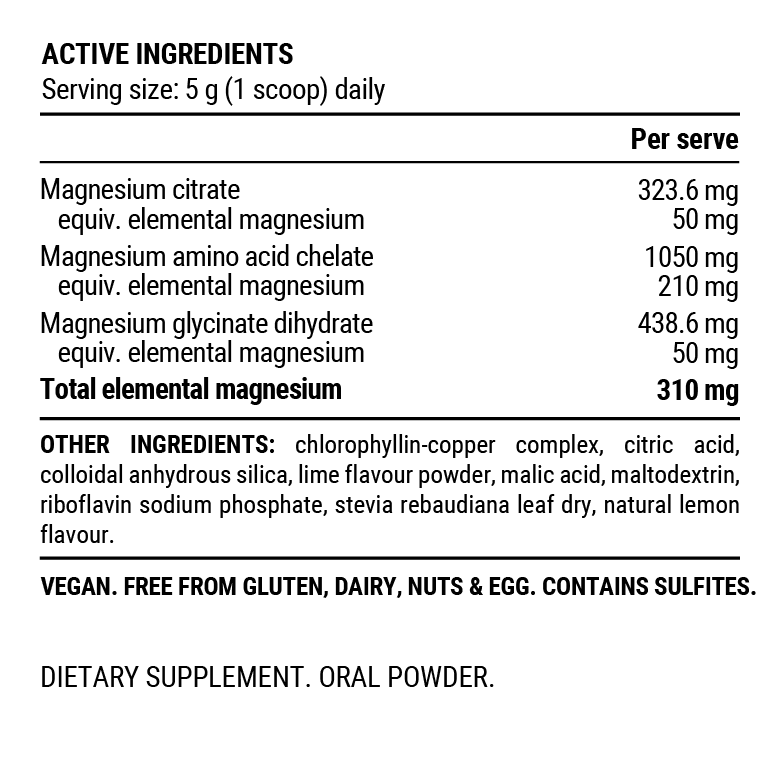
TRAINING ESSENTIALS
The Training Essentials bundle has been expertly curated for athletes who know what they need to perform on a daily basis. Combining recovery and energy via the inclusions of TRIPLE MAGNESIUM Powder and ULTRA B ACTIVE.
TRIPLE MAGNESIUM provides multi-action support for neuromuscular function, sleep and muscle recovery while also assisting with muscular aches, pains, cramps and spasms.
ULTRA B ACTIVE features upper level doses of mecobalamin (Vitamin B12) 300 mcg and Pyridoxal-5-phosphate (Vitamin B6) 15 mg.
Includes the added bonus of our 500ml Micro Shaker, featuring a custom silicone seal lid for a leak-free shake, made with BPA-free TRITAN plastic, and measurements in both ounces and millilitres, to ensure the perfect mix of your powders in water.

TRAINING ESSENTIALS
essential information
Ingredients & Dietary
- Contains stevia.
- Formulation is free from gluten, dairy, nuts, soy and egg.
Testing certificate
PILLAR products are Informed Sport Certified.
To obtain the relevant Batch Certificate for this product, head to our Batch Certificate Library and search for your product’s batch number to find the corresponding certificate.
Explore our world of Performance Health
Learn from the experts and research behind PILLAR Triple Magnesium.
FAQs
What makes PILLAR Triple Magnesium different?
Did you know that there are 11 different forms of Magnesium? Each with unique, but differing, benefits.
Most athletes have supplemented with ‘Magnesium’ at some point in time - often with minimal results when trying to solve for recovery, cramping, nervous system function, sleep etc. The common problem is simple. They supplement with the wrong form of magnesium for what they are trying to achieve.
PILLAR’s Triple Magnesium was purposefully developed to support deep sleep and therefore promote greater muscular recovery. Using leading HRV research by Dr Dan Plews, PILLAR Triple Magnesium focuses on delivering the most potent form of magnesium that can benefit sleep and recovery - magnesium glycinate.
What is magnesium glycinate?
Magnesium glycinate is a highly-absorbable form of magnesium that is bound to the amino acid glycine. Glycine works synergistically alongside many neurotransmitters – like GABA.
How does magnesium glycinate support sleep?
Magnesium glycinate is bound to glycine which helps improve absorption, calms the nervous system and helps lower body temperature. But why are these important for sleep?
Absorption:By binding magnesium to glycine, it creates a more stable form of magnesium. This means the magnesium can more easily pass through the intestinal wall, which is the part of the digestive system where nutrients are absorbed.
Nervous System:Glycine acts as an inhibitory neurotransmitter. Inhibitory neurotransmitters help slow down brain stimulation & excitement, helping us to more easily fall asleep. And because the brain is less excited, we more effectively pass through the different stages of sleep. So if deep sleep quality improves, so does physical recovery!
Body Temperature:Glycine helps regulate body temperature (essential for good quality sleep). It does this by promoting the widening of blood vessels, known as vasodilation. This helps cool down and lower the overall core body temperature. Vasodilation signals to the brain that it's time for sleep. And helps promote deep and restorative sleep.
Do endurance athletes require more magnesium?
Athletes require more. Full stop.
Just like macronutrients - protein, carbohydrates, and fats - are required at greater levels for athletes, this same exists for micronutrients.
Magnesium is depleted through sweat, urination, and lipolysis; all incurring at greater levels when undertaking exercise. Therefore, those participating in endurance type activity need to be aware that they deplete magnesium at far greater rates than sedentary people on average.
When is the best time to take Triple Magnesium?
To fully unlock the benefits of magnesium glycinate for sleep, Dr Plews recommends consuming one serving (1 x 5g scoop or two tablets) with 250ml liquid, 30-60 mins prior to sleep.
Note: This is not a sleeping tablet so if you wish to take it earlier it is safe to do so.

